Join a Book-to-Film Club
For all you movie buffs out there looking for a public club to join, check out the Movies N Books Club, Page to Screen Book Club, Film Fanatics, or the Obsessed Book Club where you can marry your love for reading and cinema. You can also start your own book-to-film club on the Bookclubs app--it's free and easy to get started!
THE (LITERARY) NOMINEES
American Fiction
Based on: Erasure by Percival Everett
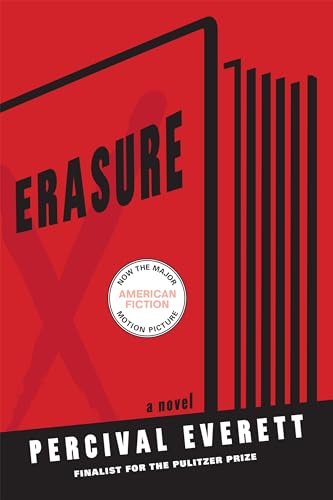
Nominated for: Best Picture, Best Actor (Jeffrey Wright), Best Supporting Actor (Sterling K. Brown), Best Adapted Screenplay, Best Original Score
Based on the plot of the 2001 novel, the film follows a frustrated novelist-professor who writes an outlandish satire of stereotypical "black" books, only for it to be mistaken by the liberal elite for serious literature and published to both high sales and critical praise. Thelonious Monk Ellison's writing career has bottomed out: his latest manuscript has been rejected by seventeen publishers, which stings all the more because his previous novels have been critically acclaimed. He seethes on the sidelines of the literary establishment as he watches the meteoric success of We's Lives in Da Ghetto, a first novel by a woman who once visited some relatives in Harlem for a couple of days. Meanwhile, Monk struggles with real family tragedies--his aged mother is fast succumbing to Alzheimer's, and he still grapples with the reverberations of his father's suicide seven years before.
Killers of the Flower Moon
Based on: Killers of the Flower Moon: The Osage Murders and the Birth of the FBI by David Grann
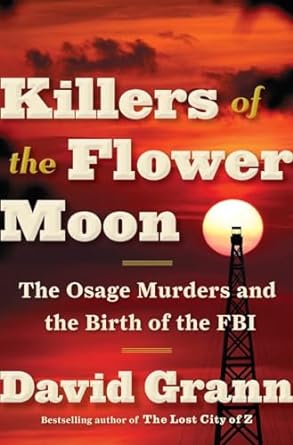
Nominated for: Best Picture, Best Director (Martin Scorsese), Best Actress (Lily Gladstone), Best Supporting Actor (Robert De Niro), Production Design, Costume Design, Cinematography, Editing, Original Score, Original Song ("Wahzhazhe (A Song For My People")) https://bookclubs.com/blog/join-the-discussion-on-killers-of-the-flower-moon
History meets mystery in Killers of the Flower Moon which takes readers on a tragic journey through a dark chapter in American history. Grann's book delves into the sinister murders that plagued the Osage Nation in Oklahoma during the 1920s. What initially appeared as a series of isolated killings soon revealed a calculated conspiracy to exploit the wealth of the Osage people. As members of the Osage Nation were systematically murdered for their oil fortunes, a web of corruption and deceit began to surface. Grann's meticulously researched book and Scorsese's evocative film converge to create a compelling narrative that transcends the boundaries of time, inviting audiences to reflect on the past and consider its implications for the present.
Nimona
Based on: Nimona by ND Stevenson
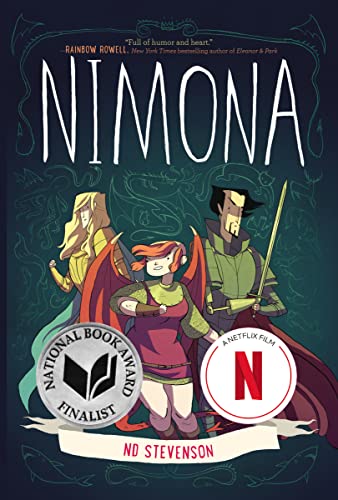
Nominated for: Best Animated Feature
Based on the best-selling graphic of the same name, the animated film Nimona follows the titular protagonist, an impulsive young shapeshifter with a knack for villainy who plays sidekick to a supervillain with a vendetta. The gruesome twosome wreaks some serious havoc during their mission to prove to their kingdom that Sir Ambrosius Goldenloin and his buddies at the Institution of Law Enforcement and Heroics aren't the heroes everyone thinks they are. As small acts of mischief escalate into a vicious battle, Lord Blackheart realizes that Nimona's powers are as murky and mysterious as her past. And her unpredictable wild side might be more dangerous than he is willing to admit.
Nyad
Based on: Find A Way by Diana Nyad
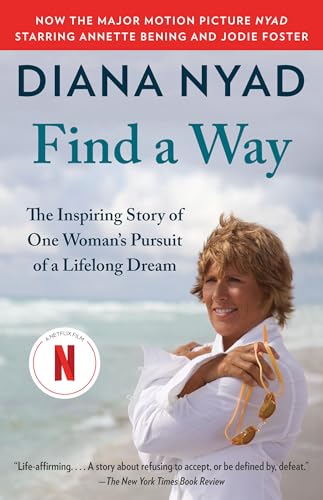
Nominated for: Best Actress (Annette Bening), Best Supporting Actress (Jodie Foster)
Nyad is based on the riveting memoir of swimmer Diana Nyad who, at the age of 60 with the help of her best friend and coach, commits to achieving her life-long dream: a 110-mile open ocean swim from Cuba to Florida. When Diana Nyad arrived on the shore of Key West after fifty-three hours of grueling swimming across an epic ocean, she not only set a world record--becoming the first person to swim the shark-infested waters between Cuba and Florida with no cage for protection--she also succeeded in fulfilling a dream she first chased at age twenty-eight and at long last achieved when she was sixty-four.
Oppenheimer
Based on: American Prometheus: The Triumph And Tragedy of J. Robert Oppenheimer by Kai Bird and Martin J. Sherwin
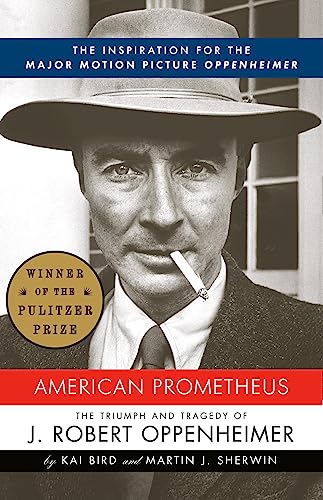
Nominated for: Best Picture, Best Director (Christopher Nolan), Best Actor (Cillian Murphy), Best Supporting Actor (Robert Downey Jr.), Best Supporting Actress (Emily Blunt), Adapted Screenplay, Production Design, Costume Design, Cinematography, Editing, Makeup and Hairstyling, Sound
The inspiration for this blockbuster hit is American Prometheus, the acclaimed, twenty-five-years-in-the-making biography of J. Robert Oppenheimer, one of the iconic figures of the twentieth century, a brilliant physicist who led the effort to build the atomic bomb for his country in a time of war, and who later found himself confronting the moral consequences of scientific progress. For the Barbenheimer fans in the house, check out our Barbie Book Club reading list to soothe the sting from director Greta Gerwig not receiving a Best Director nomination.
Poor Things
Based on: Poor Things: Episodes from the Early Life of Archibald McCandless M.d. Scottish Public Health Officer by Alasdair Gray
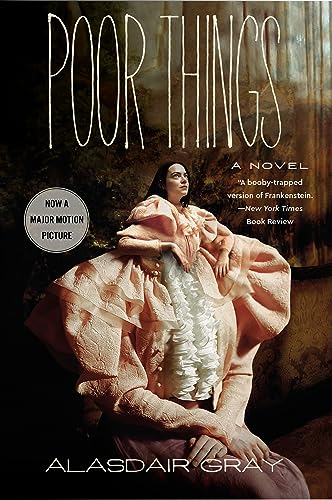
Nominated for: Best Picture, Best Director (Yorgos Lanthimos), Best Actress (Emma Stone), Best Supporting Actor (Mark Ruffalo), Adapted Screenplay, Production Design, Costume Design, Cinematography, Editing, Makeup and Hairstyling, Original Score
The basis for the heavily nominated movie begins in 1880s Glasgow, Scotland, when a medical student Archibald McCandless finds himself enchanted with the intriguing creature known as Bella Baxter. Supposedly the product of the fiendish scientist Godwin Baxter, Bella was resurrected for the sole purpose of fulfilling the whims of her benefactor. As his desire turns to obsession, Archibald's motives to free Bella are revealed to be as selfish as Godwin's, who claims her body and soul. But Bella has her own passions to pursue. Passions that take her to aristocratic casinos, low-life Alexandria, and a Parisian bordello, reaching an interrupted climax in a Scottish church. Exploring her station as a woman in the shadow of the patriarchy, Bella knows it is up to her to free herself--and to decide what meaning, if any, true love has in her life.
The Color Purple
Based on: The Color Purple by Alice Walker
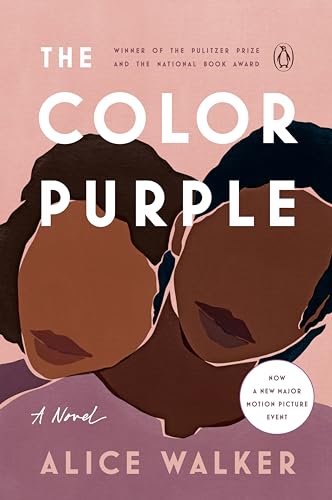
Nominated for: Best Supporting Actress (Danielle Brooks)
Forty years after it was first published, Alice Walker's novel serves as the inspiration for the newest film adaptation of the Tony-winning Broadway musical. A powerful cultural touchstone of modern American literature, The Color Purple depicts the lives of African American women in early twentieth-century rural Georgia. Separated as girls, sisters Celie and Nettie sustain their loyalty to and hope in each other across time, distance, and silence. Through a series of letters spanning twenty years, first from Celie to God, then the sisters to each other despite the unknown, the novel draws readers into its rich and memorable portrayals of Celie, Nettie, Shug Avery, and Sofia and their experiences. The Color Purple broke the silence around domestic and sexual abuse, narrating the lives of women through their pain and struggle, companionship and growth, resilience, and bravery. Deeply compassionate and beautifully imagined, Alice Walker's epic carries readers on a spirit-affirming journey toward redemption and love. The Color Purple was last adapted for the big screen in 1985 and received ten nominations including Best Picture.
The Zone of Interest
Based on: The Zone of Interest by Martin Amis
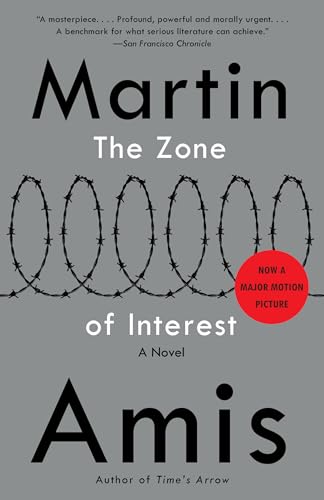
Nominated for: Best Picture, Best Director (Jonathan Glazer), Adapted Screenplay, Sound, International Feature
The Zone of Interest is a period drama loosely based on the 2014 novel of the same name, an astonishing portrayal of life in "the zone of interest," or "kat zet"--the Nazis' euphemism for Auschwitz. The narrative rotates among three main characters: Paul Doll, the crass, drunken camp commandant; Thomsen, nephew of Hitler's private secretary, in love with Doll's wife; and Szmul, one of the Jewish prisoners charged with disposing of the bodies. Through these three narrative threads, Amis summons a searing, profound, darkly funny portrait of the most infamous place in history
If you enjoyed this feature, subscribe to our blog and create a Bookclubs account to access more reading and club inspiration! Already have an account? Rate and review books that you've read, and recommend your favorites to a friend.

